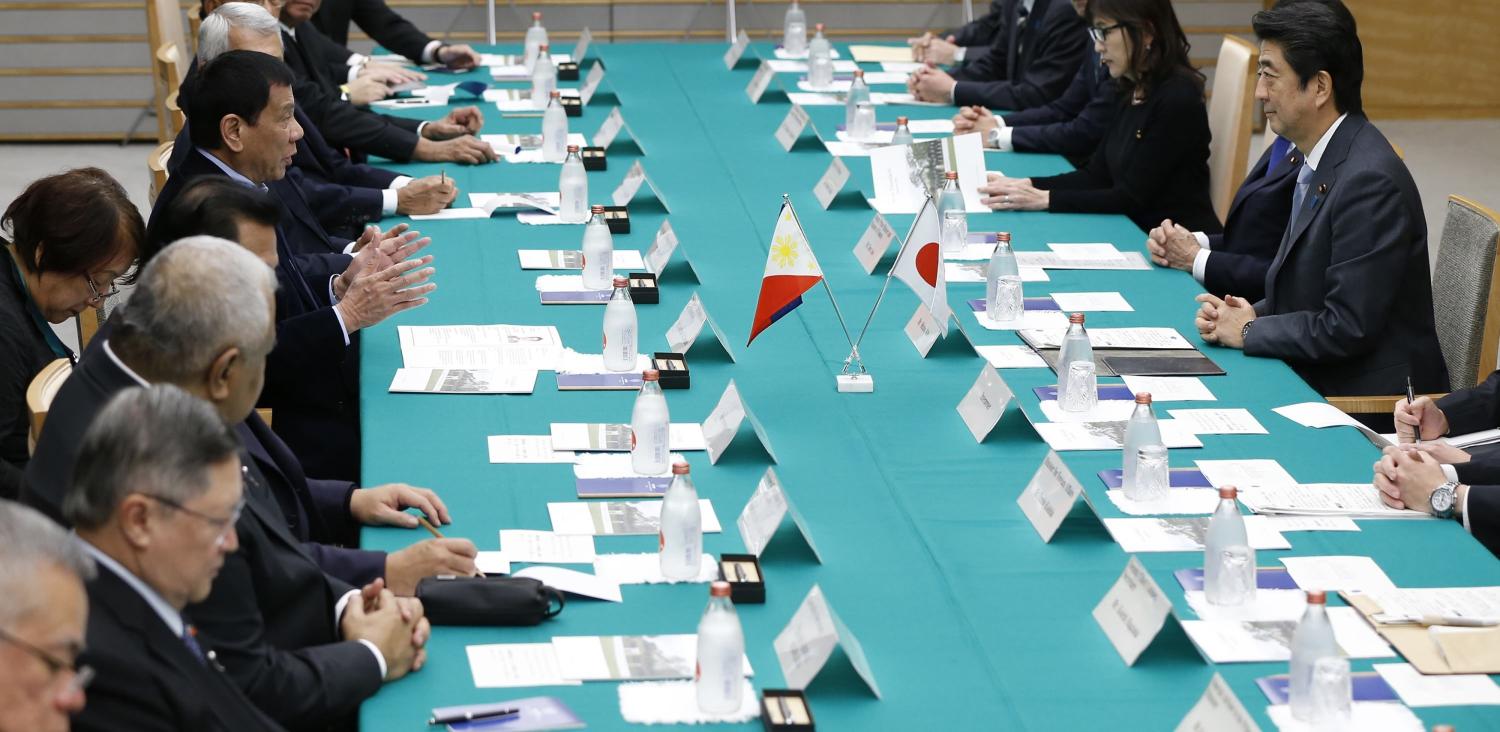President Duterte returned last night from a three-day working visit to Japan, his second bilateral trip to Tokyo since taking office in June 2016. This visit took place only two weeks before Duterte and Japanese Prime Minister Shinzo Abe will rub shoulders at the APEC meeting in Danang and Duterte will host Abe at the East Asia Summit in Manila. Clearly these two leaders, both scions of political dynasties, have a lot to talk about.
This meeting before meetings shows that both countries place importance on bilaterals above sideline meetings at regional summits, and the value of leaders developing personal bonds to advance their overlapping national interests. Duterte captured this conflation of the personal and emotional with national statecraft when Abe visited Duterte’s family home in Davao City, where Duterte referred to Japan as a 'friend closer than a brother'.
As was planned, the visit offered both leaders what they wanted. For Duterte, Abe reaffirmed with much more detail Japan’s commitment to provide aid of up to ¥1 trillion to the Philippines over the next five years, with a continued major focus on infrastructure development and a new one on aiding the reconstruction of Marawi City. Japan is providing the bulk of the finance for the Philippines’ largest planned infrastructure project (Metro Manila’s first subway line) and is likely to remain the Philippines' largest source of foreign infrastructure financing. Such continued Japanese generosity led President Duterte to declare the dawn of a 'golden age in the strategic partnership' between the two countries.
This declaration, and the ¥1 trillion backing it up, provides a strong counterpoint to criticism that President Duterte’s anti-Western tirades and desire for an 'independent foreign policy' will lead the Philippines to become 'maritime Southeast Asia’s Cambodia'. Rather, Duterte can claim with some veracity a golden age in relations with Japan and vastly improved relations with China at a time of intense China-Japan rivalry and distrust.
For Abe, the timing of the visit was a boost. Duterte chose to visit Japan on the eve of the ASEAN summit which Duterte will chair, a clear symbol of the importance of Japan for the Philippines and the region. This helps counter Japan’s deep fears of being sidelined by China, fears aggravated regionally by the fanfare around China’s Belt and Road Initiative and in the Philippines by Duterte’s blatant courting of Beijing.
During the joint public statement, Abe also claimed Philippine support for Japan’s concept of a 'free and open Indo-Pacific', the same concept US Secretary of State Tillerson promoted in his keynote speech before heading out to Asia for APEC and the East Asia Summit.
Japan does not want to be pushed to the periphery by China in Southeast Asia, and Southeast Asian states do not want to become too beholden to China. These defensive interests have a lot of overlap. Japan-Philippine relations under the Duterte Administration, so far, are testament to this meeting of fears.

